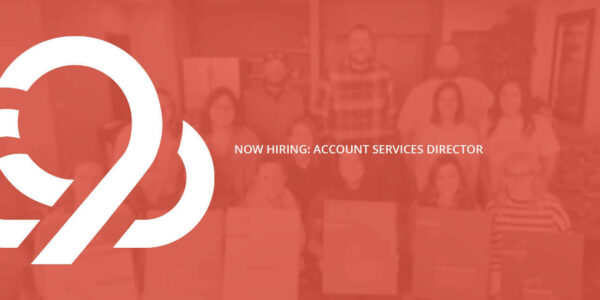
How to Streamline Your Customer Data (Or, Why 9 Clouds Built Hydra)
Data and list management is an important — if tedious — aspect of any marketer’s job. It can be a time suck to be managed properly or miss out on reliable and correct data.
When 9 Clouds came face to face with this many-faceted data management challenge, we tamed a Hydra.
Why Data Management Is Important (And Hard) for Businesses
I joined 9 Clouds when we were on the cusp of going “all in”. Having come from previous worlds of sales and tourism, I lived in spreadsheets, customer relationship management (CRM) systems, and client information.
While in some ways any industry data can be daunting, we ultimately found the challenges our automotive clients faced to be unique. We saw a huge opportunity to help them break away from outbound marketing and look instead to inbound marketing.
As time passed, we realized more industries faced the same challenges with offline sales, franchise/brand standards and practices, and — above all — data that needed to be formatted for the ever-changing marketing platforms.
Among the core services we offered were lead reporting and tracking and email marketing. Unfortunately, especially back then, doing these services well with the tools available to our clients just wasn’t possible.
Enter Other Data Management Tools
So we brought other tools to the table, primarily HubSpot. HubSpot has excellent lead tracking that empowers its email and workflow capabilities, but there was just no intuitive way to integrate data from our clients’ CRM.
Thus began a long journey to refine and perfect data management at 9 Clouds.
In the simplest terms, we exported lead / sales / service data from an auto dealer’s CRM and were able to import it into HubSpot, SharpSpring, Mailchimp or another marketing tool. As a one-off transaction, that’s pretty straightforward.
But over time, we found there to be far more complications than we could have anticipated.
Businesses changed CRMs, a CRM changed its output format, or somebody on our team simply changed the filters when exporting from the CRM. Suddenly, the export didn’t match, the import didn’t line up, and — best case scenario — somebody (cue me!) got to spend the time they didn’t have re-mapping the data.
That’s if we even caught the change. (We didn’t always catch it.)

The Thing About People Is Pobody’s Nerfect
In an ideal world,
- Everybody has a first and last name
- Phone numbers and dates are always formatted the same way
- Email addresses are always valid
- Product descriptions are never in all caps
That would be ridiculous. We learned quickly that, in reality, not a single one of these statements is true with most CRMs.
It wasn’t uncommon for a string of text generated from the raw data to look like *Dear JOHN we are grateful you bought a FORD F150 from us on 12/may/0000.
Introducing Project Hydra
For the sake of our sanity, we needed to find an easier way to manage client data. We documented the challenges, mapped the desired outcome, and finally shared a vision we dubbed Project Hydra.
The project, Hydra, is so named for the beast of Greek mythology: a dragon with seven heads that grow back two for every one severed. Is the nebulous data we’re working with the hydra we are slaying, or have we employed a hydra to slay legion? I go back and forth on it. . . . Taming a hydra sounds pretty cool, though.
Allen Day, Creator of Hydra and Chief Technology Officer Emeritus
Our chief technology officer emeritus, a recovering developer, set out to build that first prototype. It was quick . . . enough. Granted, it wasn’t pretty, but the potential was there.
As he chipped away at each of the problems we’d identified, I led a part of the team to create our own glossary of fields for auto and RV clients — predefining what consistency should look like.
With Hydra, that ideal world we sought eventually became really close to reality. We had both the map and the software needed to unify data from myriad sources, cleaning and repairing data as the tool ran.
Bringing Hydra to Life for Facebook Offline Conversions
We started with that prototype. It had a lot of potential as a proof of concept. But it was a bit clunky to use and choked on particularly large files.
Within the first six months of the project, a new challenge was emerging: Facebook Offline Conversions. Gradually, Google Ads audiences and offline conversions became a regular part of our data process. We quickly learned that:
- The format for these each offline conversion data upload was very particular and unforgiving.
- Error reporting was not very informative.
- None of the data column names matched anything we’d seen from any CRM.
Fortunately, the work we’d done with the proof-of-concept Project Hydra taught us a ton and laid a solid foundation to build something really powerful.
Our Hydra lists now can efficiently format spot logs for radio and TV, keyword and ad reports, and of course offline conversion uploads. We’ve worked across dozens of CRMs and even more marketing platforms.
Not only do our team members appreciate it, but we’ve created the platform so anyone can use it.
How Hydra Has Been Transformative for Our Team
Our team has put a lot of time, effort, money and resources into designing and building Hydra. It has been worth every bit.
Some highlights of how Hydra has helped our team (and other businesses) include:
- Incredible time savings across the team, both in long and short term
- Improved accuracy and less margin for human error in mapping or changing fields
- Largely homogenous data from client team to client team, regardless of CRM or marketing platform
- People can fill in for each other across clients without needing a whole lot of training rigamarole
- Everyone knows what they’re looking at, so we can have more shared oversight, redundancy, and focus on strategy
- Uploading offline conversion data without fuss
- Formatting spot logs, reports and so much more
Now, Your Business Can Use Hydra, Too!
Want to enjoy the benefits of using Hydra, too?
While we aren’t sharing the entire Hydra ecosystem outside of 9 Clouds, we have laid the groundwork to share our experience and tools with businesses who need help transforming lead and sales data into accurately formatted conversion data.
Learn how you can save time and prove the return on investment (ROI) of your Facebook ads by getting started with Hydra.
I Want to Use Hydra for My Business »


![Human vs AI A/B Test [Spoiler Alert: Humans Win!]](https://9clouds.com/wp-content/uploads/2024/02/Volvo-dealership-1-600x388.png)


